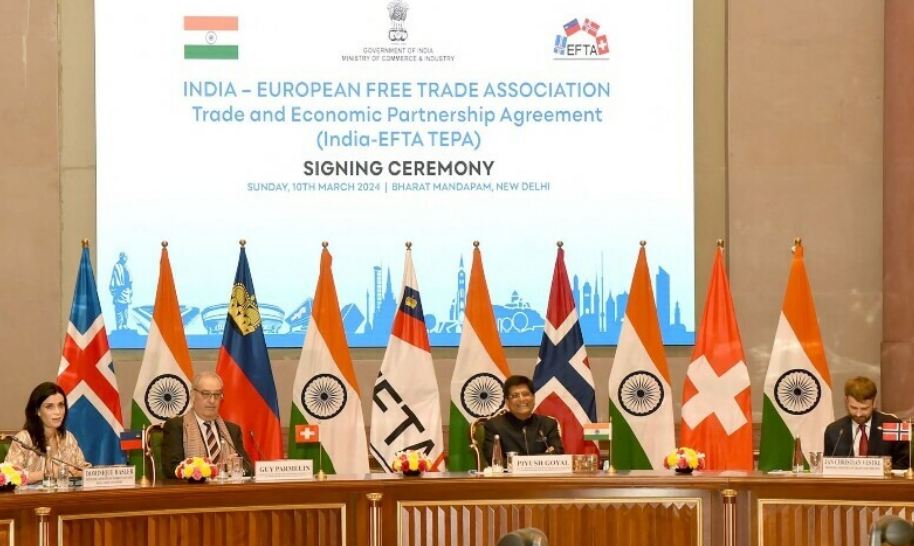





India and the European Free Trade Association (EFTA), which includes Switzerland, Norway, Iceland, and Liechtenstein, recently signed a Trade and Economic Partnership Agreement (TEPA) after 15 years of negotiations. The TEPA covers various aspects of trade, including goods and services, rules of origin, intellectual property rights, investment promotion, government procurement, competition, sustainable development, labor issues, human rights, and dispute settlement mechanisms [f4d7ab23] [d01b2fd6] [cde34a39] [dbaa72fb]. However, concerns have been raised about the impact of the TEPA on indigenous innovation in India, particularly regarding intellectual property (IP) rights [dbaa72fb].
The TEPA includes provisions on IP and investment protection and promotion, which have been criticized for granting major IP concessions to EFTA countries [dbaa72fb]. These concessions threaten the balance between public and private interests and overlook the contribution of diffusion-oriented state investment and independent innovation to technological prowess [dbaa72fb]. The IP concessions granted in the EFTA have been incorporated into the new patent rules of 2024, diluting disclosure requirements and absolving patent holders from submitting certain information [dbaa72fb].
India's focus on research and innovation has been low, with a majority of patents filed by foreign firms [dbaa72fb]. The ratio of expenditure on domestic innovation to technology import has declined, leading to an increase in foreign exchange outflows [dbaa72fb]. Critics argue that the new FTA architecture will integrate India's talent into Silicon Valley's innovation systems and push India away from essential innovations [dbaa72fb].
In a broader context, the critique of IP laws in trade agreements has been echoed by commentators like Stephan Kinsella, who argues for separating trade agreements from IP protections. He highlights that over 2,500 Bilateral Investment Treaties (BITs) exist globally, often imposing Western-style IP laws on developing nations, a practice he terms 'IP imperialism.' Kinsella's perspective aligns with concerns that agreements like TEPA may further entrench these inequities, particularly for developing countries like India [e618d633].
While the TEPA is expected to have a significant impact on India's economy and bilateral trade with the EFTA nations, concerns about the potential negative effects on indigenous innovation need to be addressed [f4d7ab23] [d6e5e382] [cde34a39] [dbaa72fb]. The Indian government should carefully consider the implications of the IP concessions granted in the agreement and ensure that the balance between public and private interests is maintained [dbaa72fb].